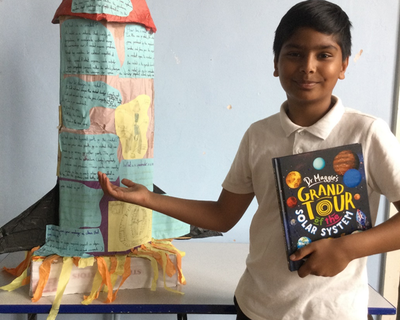Competitions and Reading Champions Challenges
As part of our ongoing work to support schools, we run Reading Champions Challenges every term. These challenges are designed to encourage reading for pleasure in schools, as well as developing reading stamina and increasing reading diversity. Read more about our Reading Champions programme.
Our challenges and competitions are open to and completely free for all UK schools.
To be sure you are first to hear about our reading challenges throughout the coming year, sign up for Resources and Training newsletter updates.
Current challenge
-
Enrich your students’ learning with this fantastic STEM reading challenge as our We Wonder series returns.Learn more about We Wonder: Protect Our Nature.
Stay updated
To be sure you receive updates about all our termly reading challenges - and on other events and resources for educators - please sign up for our newsletter and/or competition updates.

Recent competitions
-
Encourage and diversify reading for pleasure in your school with The Verse Novel Challenge.Learn more about The Verse Novel Challenge.
-
Activate the power of book talk in your school community with a new reading challenge that will build confidence, engagement in reading and motivation to read among students aged 5...Learn more about Book Talk Challenge.
-
Enrich your students’ learning with this fantastic STEM reading challenge as our We Wonder series returns.Learn more about We Wonder: Our Blue Planet.



